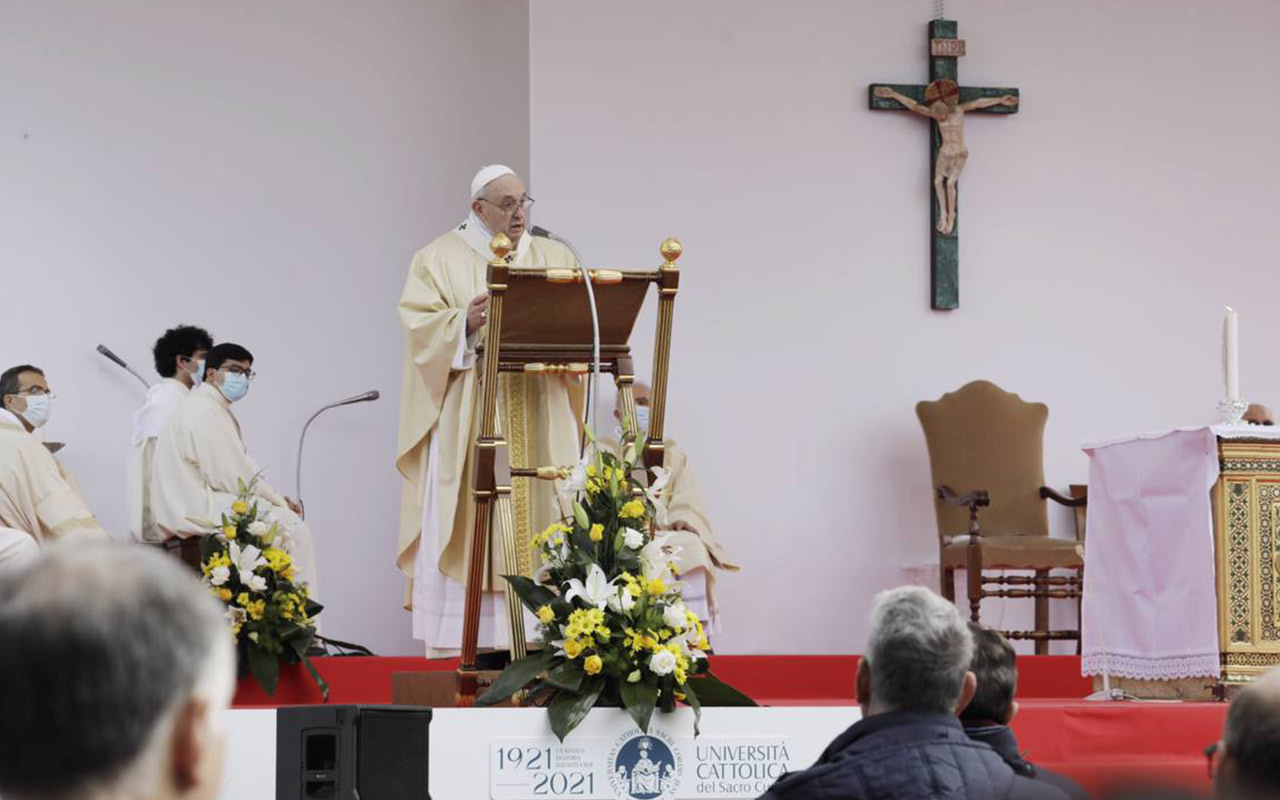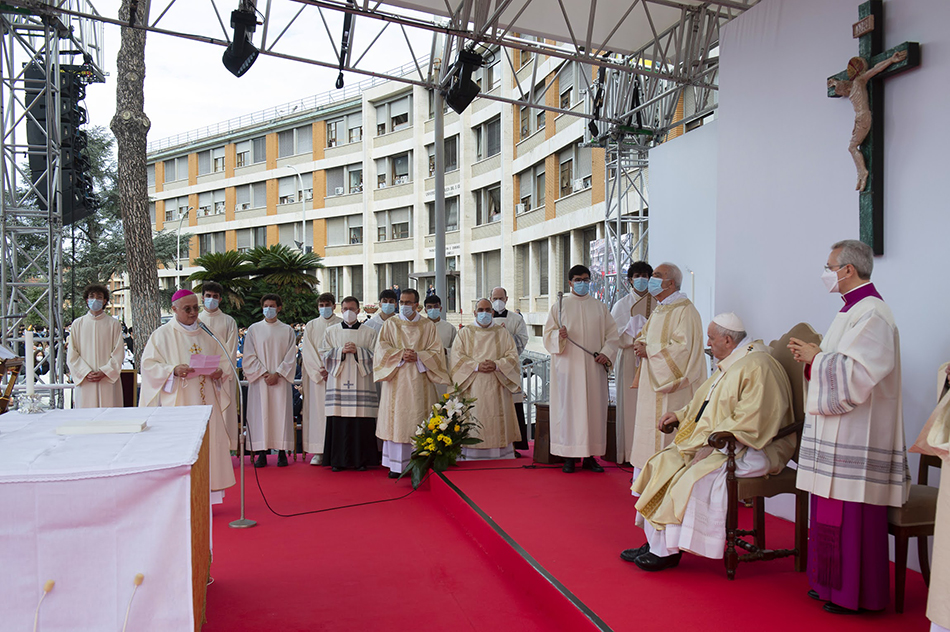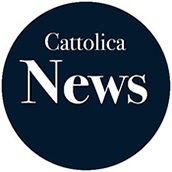Remembrance, passion and comfort. These are the three words chosen by Pope Francis in his homily on Friday 5 November in Rome on the occasion of the Holy Mass celebrated for the 60th anniversary of the inauguration of the Faculty of Medicine and Surgery at Università Cattolica del Sacro Cuore. "As we commemorate with gratitude the gift of this seat of Università Cattolica, I would like to share a few thoughts about its name", the Holy Father began. "It is dedicated to the Sacred Heart of Jesus, to whom this day, the first Friday of the month, is dedicated".
The celebration was attended by over 2,000 professors, students, administrative staff, doctors and health workers from the Rome branch of Università Cattolica and from Fondazione Policlinico Universitario Agostino Gemelli IRCCS, as well as numerous hospital patients, gathered in the square in front of the Faculty of Medicine and Surgery, founded on 5 November 1961, to complete Father Agostino Gemelli's project of creating a University that would place the human person at the centre of all research and training activities.
In his greeting to the Pope, the General Ecclesial Assistant of the University, H.E Monsignor Claudio Giuliodori, who concelebrated together with the secretary of the Italian Bishops' Conference, Monsignor Stefano Russo, expressed his deepest gratitude to the Holy Father for having accepted to preside over this Eucharistic celebration. "Every step in these 60 years of extraordinary growth has been accompanied by the care and encouragement of the Popes, starting with the wish expressed by St John XXIII on the day of the inauguration", said Monsignor Claudio Giuliodori at the beginning of the celebration, recalling the days when the Holy Father was admitted to the Gemelli Hospital. "We have always felt the strong support and sure guidance of the successor of Peter", added the General Ecclesial Assistant: "We still need to be comforted and guided in the realisation of the fascinating mission, to form witnesses of God's merciful love: doctors, health personnel and administrative staff" who know how to "take care" with the "highest scientific competence" and with "authentic compassion of the most needy".
The importance of care, compassion and comfort came up again and again in the Holy Father's homily, which included references to the uncertainty of the moment that has made us all smaller and more fragile. Perhaps for this reason, in this time of pandemic, it may be helpful to remember, which for Pope Francis "means 'returning to the heart'". However, the Holy Father remarked, "in today's hurry, amidst a thousand races and continuous worries, we are losing the ability to be moved and to feel compassion, because we are losing this return to the heart, the memory. Without memory we lose our roots and without roots we do not grow. It is good for us to nurture the memory of those who have loved us, cared for us, raised us up. Today I would like to renew my 'thank you' for the care and affection I have received here. I believe that in this time of pandemic, it is good for us to remember even the most painful periods: not to make us sad, but not to forget, and to orient our choices in the light of a very recent past".
Hence the need for the Holy Father to "cultivate the art of remembrance, treasuring the faces we meet". The thought goes to the "tiring days in hospital, in university, at work. We run the risk that everything will pass without a trace or that only so much fatigue and tiredness will remain. It is good for us, in the evening, to review the faces we have met, the smiles we have received, the good words. They are memories of love and help our memory to find itself again. How important these memories are in hospitals! They can give meaning to a sick person's day. A fraternal word, a smile, a caress on the face: these are memories that heal inside, they do the heart good. Let us not forget the therapy of remembrance!".





